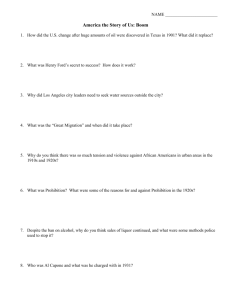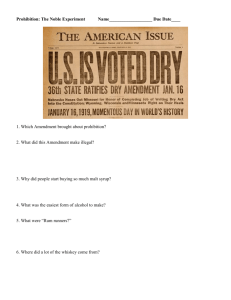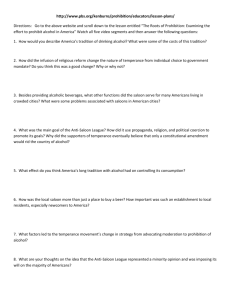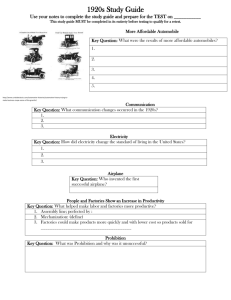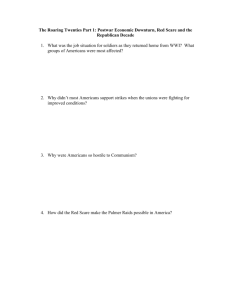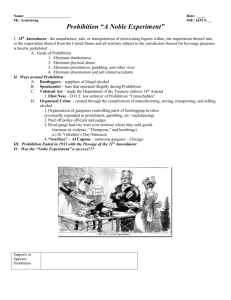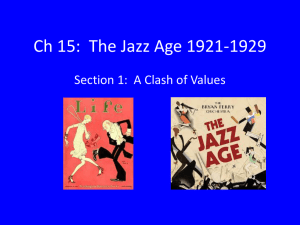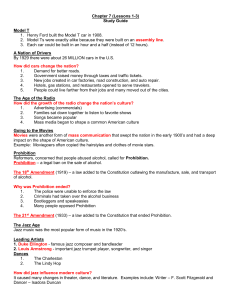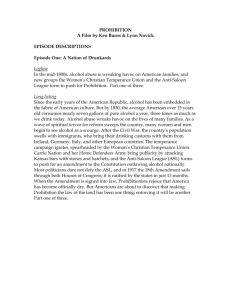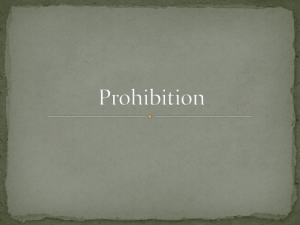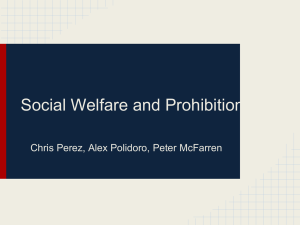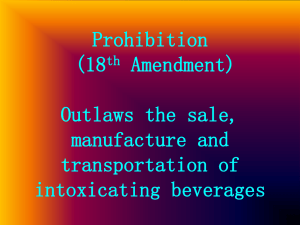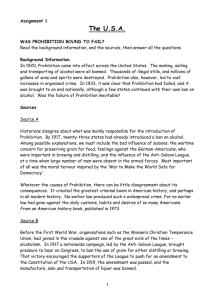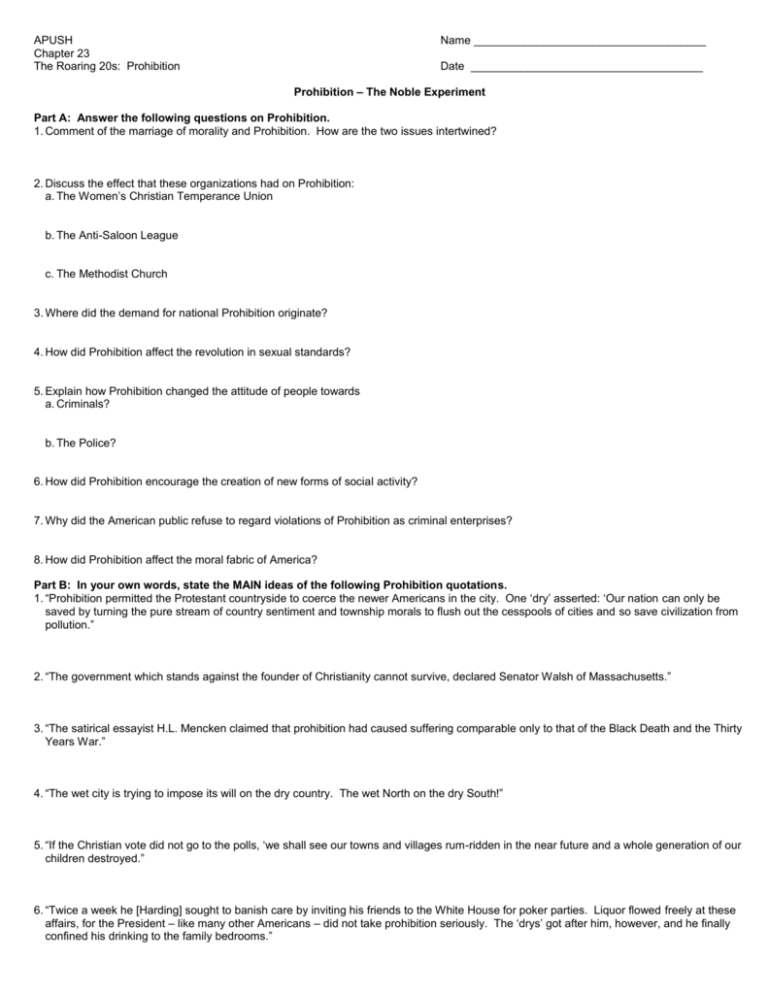
APUSH
Chapter 23
The Roaring 20s: Prohibition
Name _____________________________________
Date _____________________________________
Prohibition – The Noble Experiment
Part A: Answer the following questions on Prohibition.
1. Comment of the marriage of morality and Prohibition. How are the two issues intertwined?
2. Discuss the effect that these organizations had on Prohibition:
a. The Women’s Christian Temperance Union
b. The Anti-Saloon League
c. The Methodist Church
3. Where did the demand for national Prohibition originate?
4. How did Prohibition affect the revolution in sexual standards?
5. Explain how Prohibition changed the attitude of people towards
a. Criminals?
b. The Police?
6. How did Prohibition encourage the creation of new forms of social activity?
7. Why did the American public refuse to regard violations of Prohibition as criminal enterprises?
8. How did Prohibition affect the moral fabric of America?
Part B: In your own words, state the MAIN ideas of the following Prohibition quotations.
1. “Prohibition permitted the Protestant countryside to coerce the newer Americans in the city. One ‘dry’ asserted: ‘Our nation can only be
saved by turning the pure stream of country sentiment and township morals to flush out the cesspools of cities and so save civilization from
pollution.”
2. “The government which stands against the founder of Christianity cannot survive, declared Senator Walsh of Massachusetts.”
3. “The satirical essayist H.L. Mencken claimed that prohibition had caused suffering comparable only to that of the Black Death and the Thirty
Years War.”
4. “The wet city is trying to impose its will on the dry country. The wet North on the dry South!”
5. “If the Christian vote did not go to the polls, ‘we shall see our towns and villages rum-ridden in the near future and a whole generation of our
children destroyed.”
6. “Twice a week he [Harding] sought to banish care by inviting his friends to the White House for poker parties. Liquor flowed freely at these
affairs, for the President – like many other Americans – did not take prohibition seriously. The ‘drys’ got after him, however, and he finally
confined his drinking to the family bedrooms.”

